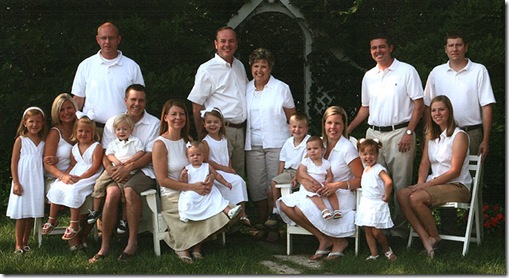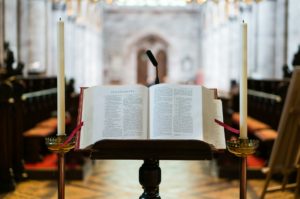As an elder of a church plant, I am conscious of who comes through the doors on Sunday morning. A host of questions rush to the fore every time I see a new face, not all of which are guided by the gospel. In the following post, my friend, Dave Horn, Director of Ockenga Institute at Gordon-Conwell, identifies a particularly insidious motive that creeps into our consciousness whenever we consider visitors of church.
*****
I was reading through the second chapter of James the other day and found his long boney finger poking me in the chest again. The good brother of Jesus was once again yelling at me, in this case about my ever so subtle tendency toward expressing favoritism in my church.
The scene he paints could not be more vivid: The setting is the gathered place of worship, perhaps a messianic synagogue (James 2.2-4). As we read the story in the second chapter, possibly the glint of gold on the finger as the sun hits it is what we are drawn to first. Then we notice the purple robes. Clearly this person who just entered the synagogue is a person of distinction. We cannot help but notice him, and if noticing him is our only fault, perhaps we would be okay. But it takes only this first glance at this visitor for the social gravity of the place to take over. Like a rock, the rich visitor falls to the front of the place of worship. When he arrives at the front, he found a poor man without a ring, void of a colorful robe, and perched at his feet. Let the worship service begin.
Extending beyond my own personal proclivities in this matter as I face the fellowship hall of my own church every Sunday, I find the most dramatic example of preferentiality in the church today in general is in the celebrity status we give to some within our congregations. Don’t we offer certain individuals in our Christian circles celebrity status that mimics the larger culture around us? People and US magazines have nothing on us in this regard. If we were to compare the lists of celebrities who are hot commodities in the Christian world at any time, our lists would be remarkably similar. We should resist this celebrity culture for the sake of these individuals as well as for our own.
Further, the greatest dangers in our churches in this regard may be the most subtle. Discussions involving the status of churches themselves inevitably will illicit a clear profile of what would conventionally be considered "healthy” or vital churches versus those considered not so. Any pastor committed to the current canon of literature involving numerous church growth models in circulation will know that the "sweet spot” in any congregation involves attracting young couples in their 20s through their 40s who have lots of children and youth to fill church programs. These are the productive years in the lives of families; the hope is, of course, some of this productivity will translate into the productivity within our churches as well. Conversely, when discussing less productive churches, the most natural description is that they are small churches "filled with old people.”
There is undoubtedly logic to this profile that has a great deal of merit to it, and it has, by and large, passed the test of time for pragmatic reasons. But stepping back far enough to see this perspective against the larger backdrop of the kingdom of God, does this profile of church life not illustrate precisely what James rails against in his example of what is not to go on in the churches he is writing to in first century Asia Minor? Like the silver ring and purple robe of the wealthy visitor, we give preferential treatment to the most productive in our midst. It is for these that we re-engineer our worship services, sometimes to the objections of a prior generation. It is for these that we develop our best programs. And it is to these we seek to attract and accommodate. We do these things while those who we may deem less productive—the aging, sometimes singles, at times the economically challenged—tend not to get as much of our attention. Even our descriptions of them suggest that we view them somewhat as liabilities to our church life.[1] Of this, I will only repeat James’ admonition: "My brothers (and sisters), as believers in our glorious Lord Jesus Christ, don’t show favoritism (2.1).”
[1] There are several who are beginning to rethink some of these values that have become so central to our thinking of church life. Two who have especially rethought the role of the elderly within our churches are Gordon McDonald, Who Stole My Church (Nashville, Tennessee: Thomas Nelson, 2007) and Cedric W. Tilberg, Revolution Underway: An Aging Church in an Aging Society, Minneapolis: Fortress Press, 1984.
David Horn, ThD
Director of the Harold John Ockenga Institute
Director of Semlink






